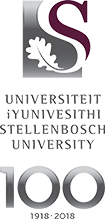This Department was established in 1920 and has a long tradition of research in macroeconomics, structural economic issues, and economic policy formulation, implementation and assessment in the context of a developing country.

This Department was established in 1920 and has a long tradition of research in macroeconomics, structural economic issues, and economic policy formulation, implementation and assessment in the context of a developing country.
Exchange agreements exist with, among others, the Vrije University, and the Universities of Erasmus and of Maastricht. An exciting new development is the offering of a double degree master's programme in Development Economics in partnership with Göttingen University in Germany.
ReSEP (Research on Socio-Economic Policy) is a group of researchers consisting of staff members, contract research staff and graduate students that focuses on issues of poverty, income distribution, social mobility, economic development and social policy.
Their research was further stimulated when Professor Servaas van der Berg in 2008 became the South African National Research Chair in the Economics of Social Policy, financially supported by the National Research Foundation (NRF).
Admission Requirements:
Stellenbosch University (SU) is home to an academic community of 29 000 students (including 4 000 foreign students from 100 countries) as well as 3 000 permanent staff members (including 1 000 academics) on five campuses.
The historical oak-lined university town amongst the Boland Mountains in the Winelands of the Western Cape creates a unique campus atmosphere, which attracts local and foreign students alike. On the main campus, paved walkways wind between campus buildings – some dating from previous centuries; others just a few years old.
Architecture from various eras attests to the sound academic foundation and establishment of an institution of excellence. This, together with the scenic beauty of the area; state-of-the-art, environmentally friendly facilities and technology, as well as visionary thinking about the creation of a sustainable 21st-century institution, makes for the unique character of Stellenbosch University.
Academic Excellence and Innovation:
The University is amongst South Africa's leading tertiary institutions based on research output, student pass rates and rated scientists, and is recognised internationally as an academic institution of excellence.
It boasts the highest weighted research output per full-time academic staff member of all South African universities and the second-highest number of scientists in South Africa who have been rated by the National Research Foundation (NRF). It also has the highest student success rate in the country.
SU is cementing its reputation as a world-class institution. According to the Times Higher Education World University Rankings, SU is one of the top 300 universities in the world, and among the top 20 in BRICS countries.
It also features among the world's elite institutions in 10 of the 36 subjects featured in the QS World University Rankings by Subject for 2015. SU was also included in the 2014 CWTS Leiden Ranking, which measures the scientific performance of 750 major universities worldwide.
With 18 research chairs under the NRF South African Research Chairs Initiative (SARChi), the University is regarded as a leader in the fields of biomedical tuberculosis research and management, wine biotechnology, animal sciences and mathematical biosciences.
Another SARChi chair, in the field of invasion biology, is shared between SU and the University of Venda. This constitutes but one of SU's many partnerships, both local and international. As a preferred research partner, SU also participates in various international academic networks.
Faculties and Campuses:
SU has ten faculties: AgriSciences, Economic and Management Sciences, Medicine and Health Sciences, Engineering, Military Sciences, Arts and Social Sciences, Science, Education, Law, and Theology.
© 2025 coursetakers.com All Rights Reserved. Terms and Conditions of use | Privacy Policy